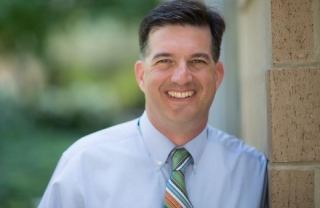
Core Faculty
Michael Pignone, MD, MPH
Dr. Michael Pignone is the Faculty Director for Primary Care Transformation and Innovation as well as a Core Faculty and Faculty Executive Committee member at Duke-Margolis. He has a primary faculty appointment at the Duke School of Medicine's Department of Medicine, where he is also the Vice Chair for Quality and Innovation, and a secondary appointment in the Department of Population Health Sciences.
Mike joins Duke from The University of Texas at Austin Dell Medical School where he served as the inaugural chair for the Department of Internal Medicine and holds the Dr. Lowell Henry Lebermann Endowed Chair in Internal Medicine. He also serves as co-director of the program on Cancer Prevention and Control at Livestrong Cancer Institutes, and holds the academic rank of professor in Internal Medicine, and courtesy professor in the departments of Oncology and Population Health.
Previously, Mike was Professor of Medicine, chief of the Division of General Internal Medicine, and director of the Institute for Healthcare Quality Improvement at the University of North Carolina at Chapel Hill. His research is focused on chronic disease screening, prevention, and treatment, and on improving medical decision making, particularly in heart disease prevention, colorectal cancer screening, and management of common chronic conditions such as diabetes and heart failure. He has developed and tested interventions to mitigate literacy-related health disparities and to improve the use of appropriate preventive services. Mike also serves on the U.S. Preventive Services Task Force and has served on a number of national guideline and quality improvement panels. He has served as an Associate Editor for Medical Decision Making, a Medical Editor for the Informed Medical Decisions Foundation, and as an Editorial Board member for JAMA Internal Medicine. He earned his MD and completed residency training in primary care internal medicine at the University of California-San Francisco. He then completed fellowship training through the Robert Wood Johnson Clinical Scholars Program, earning a master’s degree in epidemiology from the UNC School of Public Health.